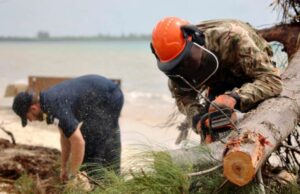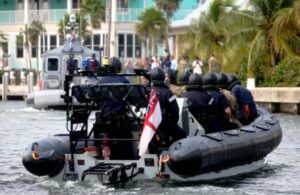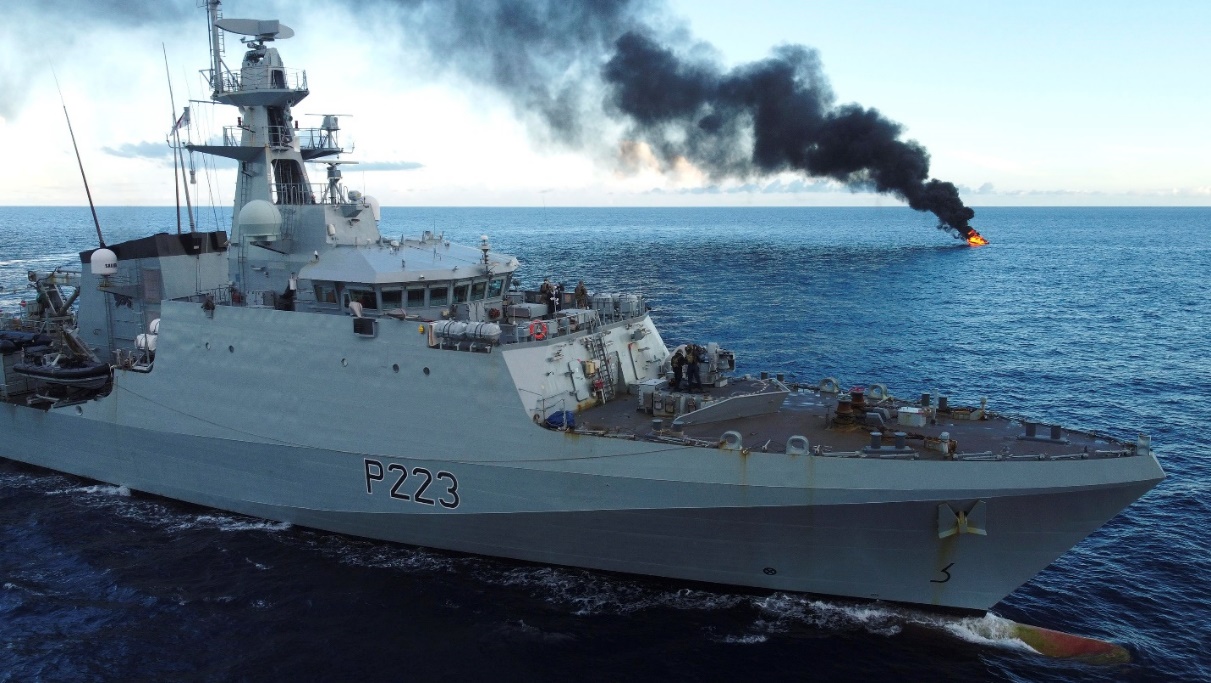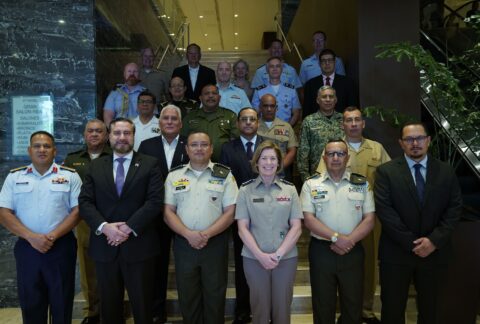The United Kingdom’s Royal Navy displayed its agility and effectiveness in recent weeks after two hurricanes impacted Caribbean communities and created an environment in which illicit trafficking could potentially flourish.
While operating as the U.K.’s prepositioned force, Royal Navy offshore patrol vessel HMS Medway placed personnel ashore in the Turks and Caicos Islands within 24 hours of Hurricane Fiona’s landfall as a Category 3 storm September 20, 2022. The team supported recovery efforts, including reconstruction of the airport fence and repairs to the prison’s generator.

The agility of the forces was tested again when Hurricane Ian threatened the Cayman Islands. Having already completed the most urgent tasks on Turks and Caicos, the crew handed over response duties to a second British vessel and arrived in the Caymans six hours before Ian struck September 26.
The timely response was the result of extensive training to hone humanitarian and disaster relief (HADR) capabilities in challenging conditions.
As the changing climate yields more devastating weather, security professionals have realized that those involved in illicit trafficking could use the calm conditions after a hurricane to move illegal goods. In late October, the crew of the Medway experienced this firsthand when they worked with the U.S. Coast Guard to interdict a drug-running vessel in the central Caribbean, seizing more than 400 kilograms of cocaine valued at $28.5 million. The drug-running vessel was eventually destroyed, pictured, by Medway’s gunnery team.
In a fast-moving operational environment — the Caribbean also experiences earthquakes and volcanic eruptions — military forces operating in the region must be well-prepared, agile, and able to work in multinational partnerships for maximum effectiveness.

The recent challenges also illustrated the need to have prepositioned forces with the ability to efficiently transition between back-to-back tasks. The use of logistics hubs — tried and tested port stops in the region to assist with refueling and stores provisioning — is also an asset in HADR response. The Royal Navy’s concept of “pods” applies, too, with mission-suitable pods (in this case, containers equipped with HADR kits) already in the area of operations and able to be swapped between vessels quickly.
And finally, the responders must be up to the challenge. Transitioning quickly from HADR operations to illicit trafficking interception meant transiting through adverse weather and in uncomfortable onboard living conditions. It also involved moving from task to task with little rest, testing sustainability and perseverance of crews. The use of realistic training scenarios, such as the annual Tradewinds exercise, contributed to a flexible and enthusiastic force that met the challenge of the Caribbean hurricane season.









